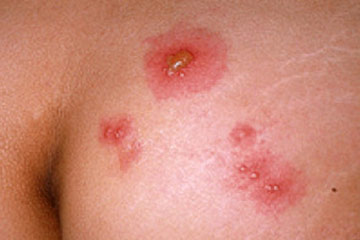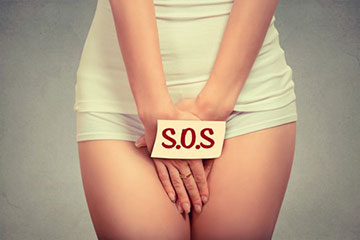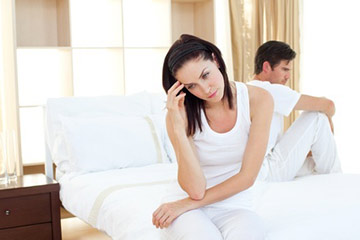Emergency contraception - Emergency birth control
-
What are the types of emergency contraception and how do they work? -
How well does emergency contraception work?
-
Does emergency contraception have side effects?
-
Will emergency contraception protect me from sexually transmitted infections (STIs)?
-
Are emergency contraceptive pills (ECPs) the same thing as the "morning after pill"?
-
How do I get emergency contraceptive pills (ECPs)?
-
I heard that 17-year-olds can now buy ECPs without a prescription — is that true?
-
Can I get emergency contraceptive pills (ECPs) before I need them?
-
What do I need to do after I take emergency contraceptive pills (ECPs)?
-
My girlfriend took emergency contraceptive pills (ECPs), and they did not work. If she stays pregnant, will there be something wrong with her baby?
-
Are emergency contraceptive pills (ECPs) the same thing as the abortion pill?
-
More information on emergency contraception (emergency birth control)
What is emergency contraception?
Emergency contraception, or emergency birth control, is used to help keep a woman from getting pregnant aftershe has had sex without using birth control or if the birth control method failed. If you are already pregnant, emergency contraception will not work.
Use emergency contraception if:
- You didn't use birth control
- You were forced to have sex
- The condom broke or came off
- Your diaphragm or cervical cap tears or slips out of place
- You missed at least two or three active birth control pills in a row (depending on which pill brand you use)
- You were more than two weeks late getting your birth control shot
- Your patch or vaginal ring is placed too late, or is removed too soon
- Your spermicide tablet doesn’t melt before sex
- Your IUD comes out
- You use the natural family planning method and don't abstain from sex on the fertile days of your cycle
- You have reason to think your regular birth control might have failed
Emergency contraception should not be used as regular birth control. Other birth control methods are much better at keeping women from becoming pregnant. Talk with your doctor to decide which one is right for you.
What are the types of emergency contraception and how do they work?
There are two types:
- Emergency contraceptive pills (ECPs)
- Intrauterine device (IUD)
Emergency contraceptive pills (ECPs)
With ECPs, higher doses of the same hormones found in regular birth control pills stop pregnancy by keeping the egg from leaving the ovary or keeping the sperm from joining the egg. While it is possible that ECPs might work by keeping a fertilized egg from attaching to the uterus, the most up-to-date research suggests that ECPs do not work in this way. In the United States, there are two kinds of FDA-approved ECPs. One is called Plan B One-Step. The other is called Next Choice. However, when used in a certain way, some regular birth control pills also can be used as ECPs.
- Plan B One-Step — Plan B One-Step is a progestin-only ECP. Plan B One-Step is like progestin-only birth control pills, but contains higher levels of the hormone. Plan B One-Step is a one-pill emergency contraceptive available over the counter for people ages 17 and older. It must be taken within 72 hours of unprotected sex.
- Next Choice — Next Choice is also a progestin-only ECP. It is like progestin-only birth control pills, but has higher levels of the hormone. Next Choice is two pills. The first pill should be taken as soon as possible within 72 hours of unprotected sex. The second pill should be taken 12 hours after the first pill. Next Choice is available over the counter for people ages 17 and older.
- Higher dose of regular birth control pills — The number of pills in a dose is different for each pill brand, and not all brands can be used for emergency contraception. For more information on birth control pills that can be used for emergency contraception, visit the Emergency Contraception website (not-2-late.com)
 . The pills are taken in 2 doses (1 dose right away, and the next dose 12 hours later). Always use the same brand for both doses, and be sure to use the active pills, not the reminder pills.
. The pills are taken in 2 doses (1 dose right away, and the next dose 12 hours later). Always use the same brand for both doses, and be sure to use the active pills, not the reminder pills.
You should always take ECPs as soon as you can after having unprotected sex, but they can work up to 5 days later in some cases. However, if you use Plan B One-Step or Next Choice as emergency contraception, you should take your first pill within 72 hours of unprotected sex. Women who are breastfeeding or cannot take estrogen should use progestin-only ECPs (like Plan B One-Step). Some women feel sick and throw up after taking ECPs. If you throw up after taking ECPs, call your doctor or pharmacist.
Intrauterine device (IUD)
The IUD is a small, T-shaped device placed into the uterus by a doctor within 5 days after having unprotected sex. The IUD works by keeping the sperm from joining the egg or keeping a fertilized egg from attaching to the uterus. Your doctor can remove the IUD after your next period. Or, it can be left in place for up to 10 years to use as your regular birth control method.
How well does emergency contraception work?
When used correctly, emergency contraceptive pills (ECPs) work very well at preventing pregnancy. Consider that about 8 in 100 women who have unprotected sex one time during the fertile part of their cycle will become pregnant. If these 100 women take progestin-only ECPs (like Plan B One-Step or Next Choice), about 1 will become pregnant. If 100 women take ECPs with estrogen and progestin, about 2 will become pregnant. The IUD works even better. Only 1 in 1,000 women who have an IUD put in after having unprotected sex will become pregnant.
The sooner you use emergency contraception after unprotected sex, the more likely it will prevent pregnancy. But you must use it correctly. For regular birth control pills used as ECPs, take the first dose within 3 days of having unprotected sex, but no later than 5 days. Take the second dose 12 hours later. For Plan B One-Step, only one pill is needed but it should be taken within 72 hours of sex. For Next Step, the first pill should be taken within 72 hours of sex and the second pill 12 hours later.
Does emergency contraception have side effects?
Some women feel sick and throw up after taking ECPs. Headache, dizziness, lower stomach cramps, irregular bleeding, breast tenderness, and fatigue also can occur. Progestin-only ECPs cause fewer side effects than combined pills that also contain estrogen. The over-the-counter drug Dramamine 2 can reduce the risk of feeling sick and throwing up. Take two of these pills 30 minutes before taking ECPs. If you throw up after taking ECPs, call your doctor or pharmacist.
IUD placement has risks of pelvic infection or harming the uterus. But these risks are quite rare. If the IUD is left in place to be used as birth control, it can cause side effects such as cramps and heavy bleeding during your period.
Will emergency contraception protect me from sexually transmitted infections (STIs)?
No. Emergency contraception can only lower the risk of becoming pregnant after having unprotected sex. Always use condoms to lower your risk of getting an STI.
Are emergency contraceptive pills (ECPs) the same thing as the "morning after pill"?
Yes. ECPs are often called the "morning after pill," which is wrong because ECPs don't have to be taken the morning after. You should always take ECPs as soon as you can after having unprotected sex, but some kinds can work up to 5 days later.
How do I get emergency contraceptive pills (ECPs)?
You can get Plan B One-Step or Next Choice at drugstores and stores with a licensed pharmacist. The FDA approved Plan B One-Step and Next Choice for sale without a prescription to those 17 and older. Women and men must show proof of age to buy Plan B One-Step or Next Choice. If you are younger than 17 and need emergency contraception, you will need a prescription, so act quickly. Talk to your parents, your doctor, or visit a family planning clinic and ask for help. In some states (Alaska, California, Hawaii, Maine, Massachusetts, New Hampshire, New Mexico, Vermont, and Washington), some pharmacists can provide Plan B One-Step or Next Choice to women younger than 17 without a prescription. If you live in one of these states, call your pharmacy to see if this is an option for you.
I heard that 17-year-olds can now buy ECPs without a prescription — is that true?
Yes. Plan B One-Step and Next Choice are currently available for sale over the counter to people 17 and older. It remains prescription-only for those under 17. Take proof of your age with you, and call ahead to make sure your pharmacy stocks emergency contraception.
Can I get emergency contraceptive pills (ECPs) before I need them?
Yes. Your doctor should bring up ECPs at your annual exam (when you have a Pap test). If your doctor does not talk about emergency contraception at your next exam, ask your doctor about it.
What do I need to do after I take emergency contraceptive pills (ECPs)?
After you have taken ECPs, your next period may come sooner or later than normal. Most women will get their period within 7 days of the expected date. Your period also may be heavier, lighter, or more spotty than normal. If you do not get your period in 3 weeks or if you think you might be pregnant after taking ECPs, get a pregnancy test to find out for sure.
Use another birth control method if you have sex any time before your next period starts. Talk to your doctor about how to choose a birth control method that is right for you.
My girlfriend took emergency contraceptive pills (ECPs), and they did not work. If she stays pregnant, will there be something wrong with her baby?
No. Studies have been done with women who did not know they were pregnant and kept taking regular birth control pills. These studies have found no greater risk for birth defects. Your girlfriend should see a doctor right away to talk about her options.
Are emergency contraceptive pills (ECPs) the same thing as the abortion pill?
No. Emergency contraception works before pregnancy begins. It will not work if a woman is already pregnant. Abortion takes place after a fertilized egg has attached to the uterus. The abortion pill (Mifeprex, also called RU-486) makes the uterus force out the egg, ending the pregnancy.






